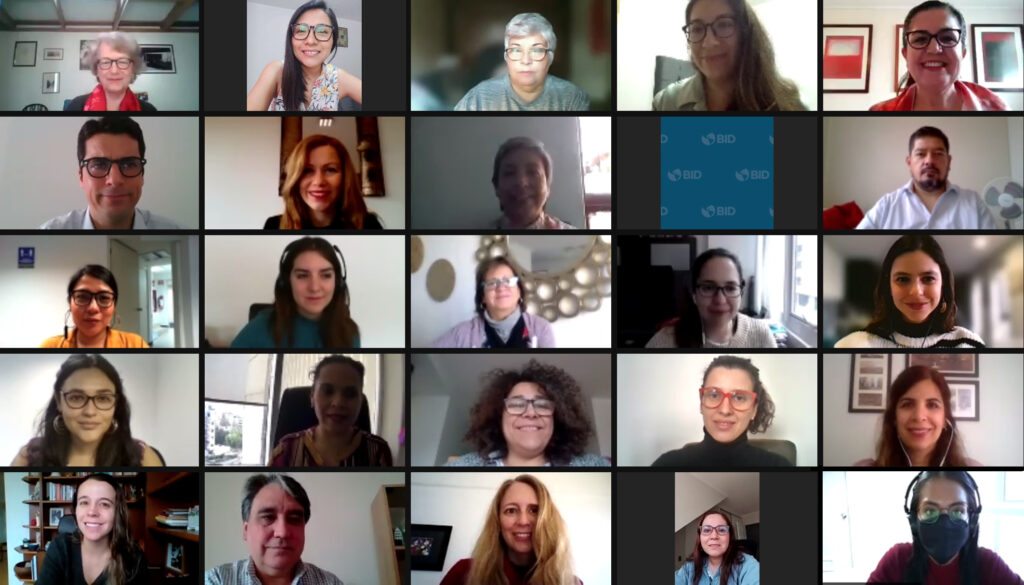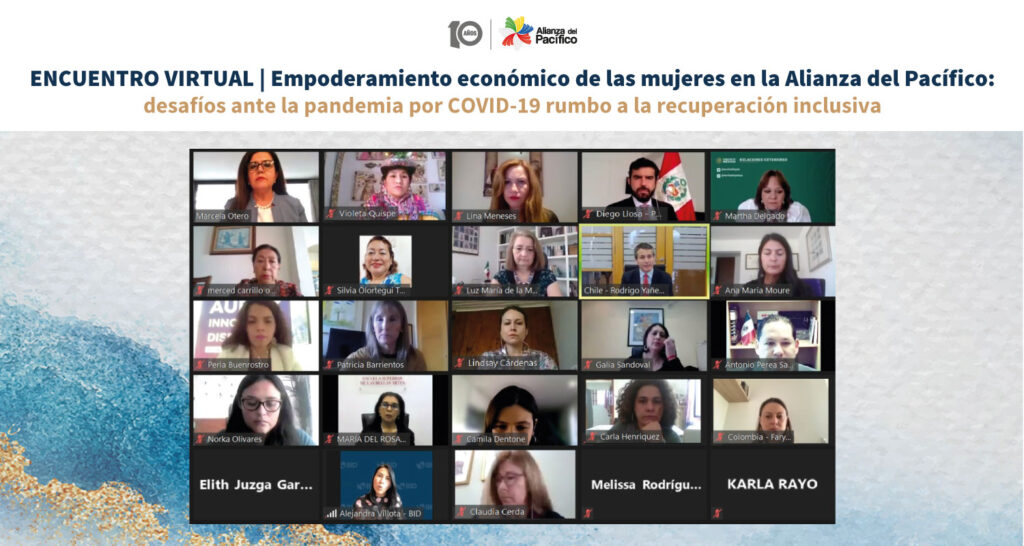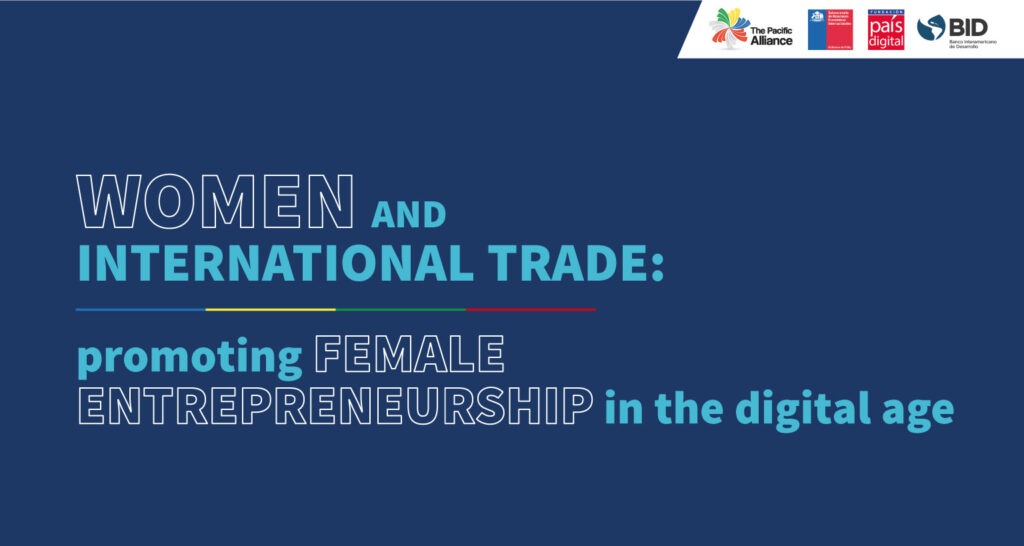April 28, 2021. – On the occasion of the 10th Anniversary of the Pacific Alliance (PA) and in follow-up to the recently adopted Presidential Declaration of the Pacific Alliance on Gender Equality[1], and its Roadmap for the autonomy and economic empowerment of women in the PA, the Gender Technical Group (GTG) with the support of the Inter-American Development Bank (IDB), held this April 28, 2021, the virtual meeting of women entrepreneurs, “Economic empowerment of women in the Pacific Alliance: Challenges in the face of the covid-19 pandemic towards inclusive recovery”.
This meeting was held in order to make visible the importance of identifying the gaps and the effects that the pandemic caused by COVID-19 has generated in women entrepreneurs in the four countries of the bloc, recognizing that it is crucial that the States contemplate an inclusive recovery without leaving anyone behind. The event opened a space for discussion and exchange for women entrepreneurs of the Pacific Alliance with a view to identifying and analyzing the main challenges they face in achieving autonomy and empowerment, as well as developing their export potential, especially under the crisis scenario.
The meeting was attended by more than 200 people, including women entrepreneurs, representatives of the public sector, international organizations, civil society organizations and academia from Chile, Colombia, Mexico, Peru, as well as Bolivia, Canada, Costa Rica, Ecuador, France, Greece, Guatemala, Nicaragua, Panama, Portugal, Puerto Rico, Sweden, Switzerland and Uruguay.
The inauguration of the meeting was attended by high-level authorities from the Pacific Alliance countries: the Undersecretary of International Economic Relations of Chile, Rodrigo Yáñez, the Undersecretary for Multilateral Affairs and Human Rights of Mexico, Martha Delgado Peralta, and the Vice Minister of Foreign Trade of Peru, Diego Llosa Velásquez, as well as, through a video message, by Vice Minister of Foreign Trade of Colombia, Laura Valdivieso Jiménez.
The opening to the panel of women entrepreneurs was moderated by Luz María de la Mora Sánchez, Undersecretary of Foreign Trade of Mexico and headed by Alejandra Villota, Senior Specialist of the Integration and Trade Sector of the IDB, who presented the main findings of the study Impact of COVID-19 on the operations of women-led businesses in the Pacific Alliance, as well as a series of recommendations for the prioritization of tools and policies to support the reactivation of companies led by women in the region.
The study was the product of collaborative work between the IDB and the governments of Chile, Colombia, Mexico and Peru through the Alliance’s Gender Technical Group. Using the ConnectAmericas for Women platform and the AP Women Entrepreneurs Community, a specialized survey was carried out to collect data that allowed to know the impact that COVID-19 and the confinement measures have had on the operation and management of companies led by and/or owned by women in the PA.
Four outstanding businesswomen from the Alliance member countries participated in the panel: Carolina Arce, Cofounder of Impactus Ventures; Roxanna Vergara, Cofounder and Commercial Director of Vendty; Perla Buenrostro, Founder of Bolder Group; and Violeta Quispe, entrepreneur of Artesanía, as well as ECLAC through the Director of the Gender Affairs Division, Ana Güezmes.
During the dialogue, the panelists shared the main obstacles, challenges, as well as strategies to face the effects of the pandemic and gender inequality from their companies. The importance of business access to technology, digitalization, financing and government support, as well as sales channels and international markets was highlighted, also the strategies that governments and the private sector must work together to reduce the differentiated impact on women and women-led businesses. ECLAC shared recommendations and key points that countries should consider to support women’s economic autonomy, taking as a reference its recent Special Report COVID-19 N⁰9: Women’s economic autonomy in sustainable recovery and with equality.
Closing remarks were given by Laura Valdivieso Jiménez, Vice Minister of Foreign Trade, Industry and Tourism of Colombia, María José Abud, Undersecretary for Women and Gender Equity of Chile, Nadine Gasman Zylbermann, President of the National Women’s Institute of Mexico, and Grecia Rojas Ortiz, Vice Minister of Women of Peru, who reiterated the support of their governments to move decisively towards the elimination of gender discrimination, through the empowerment of women and girls, as a necessary condition to achieve equitable, prosperous, peaceful and sustainable societies.
[1] https://alianzapacifico.net/download/declaracion-sobre-igualdad-de-genero/




